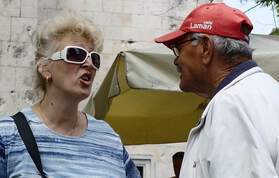 Surprise, surprise. This question has become a source of controversy. Should you capitalize the word "black" when referring to those from the United States and elsewhere who are black? I would ignore this question. But it has become a politically-tinged issue. Plus, it comes up frequently when I teach college composition, and I am tasked with teaching my students correct capitalization, not just essay structure. So....what's the answer? What a columnist from "The Punching Bag" has to say  Linguists and columnists are piling on. Larry Horist, for instance, writing in the online magazine, "The Punching Bag," on June 8, 2021 observed that..."referring to folks from nations in Africa as capitalized blacks,...not only denigrates we lowercase white folks...but also those politically designated as brown skinned." 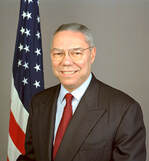 Colin Powell, former US Secretary of State Colin Powell, former US Secretary of State That seems to me like pretty slick and far-fetched reasoning. I would be more convinced if the capitalized "B" in Black simply referred to American African-Americans. That would make more sense to me. But then I decided to take took a look at a recent edition of the journalist's Bible--the much revered AP Stylebook: "There is a clear desire and reason to capitalize Black. Most notably, people who are Black have strong historical and cultural commonalities, even if they are from different parts of the world." --The Associated Press Style Book 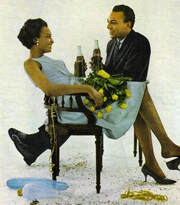 Well, yes, I'll go along with the AP for now. But I can't help remembering my favorite young woman who worked for me as an intern many years ago. She was very petite, pretty and ebony-skinned. One day she mentioned that her grandmother used to say, "She was as American as apple pie." I agree. And because of that, I guess either way is fine with me, although I'll stick with the AP style for now with my students.
0 Comments
From......THE ENGLISH TUTOR0ne-on-One Learning The right approach for your student COVID-19 has thrown the world of education upside down. So whether your student is being taught through distance learning, in a hybrid classroom, or in a classroom where everyone is "safely distanced," you are right to be concerned. Is your student losing out? Now is not the time for inaction. You need to make sure your student is receiving the education he or she needs to achieve longstanding academic goals. So now is the time to consider our one-on-one learning. This approach will give your student a personalized education program tailored to his or her exact needs. We specialize in overcoming the obstacles that keep students from achieving their goals, and we have been very successful helping sutdents acquire the skills they need in to excel in in English composition, reading and PSAT and SAT prep. Call us at Top Notch Tutoring to discuss your student's needs. April W. Klimley | 917-626-4838 or [email protected] Teaching Specialties Reading | Writing | Grammar Sentence, Paragraph, & Essay Structure College Essays | PSAT & SAT Prep | ASVAB Coaching For students in High school, college, and (sometimes) middle school April W. Klimley
Writer and College Professor EDUCATION: BA in English, cum laude, Vassar College | BS at the Columbia University School Journalism Adjunct English Instructor at Palm Beach State College, FL Formerly: Tutor in Writing Center of Broward College, FL, and Adjunct English Instructor at Brookdale Community College, NJ 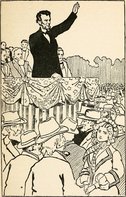 This particular phrase irritates me; I don't know why. But here's how it is used these days. Let's say I'm at a conference, and the speaker or panel is wrapping up. Then the moderator comes out and asks you to "Give it up for--today's speaker, Suzie Q." Of course, that speaker deserves a round of applause. But where did that phrase come from? And why does it mean, "Let's clap for" or "Let's give a round of applause for" the speaker? 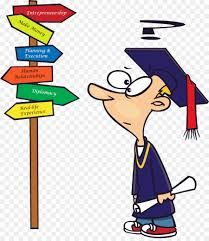 The first time I heard the phrase was at an innovation conference in 2006 I think. The speaker had just wrapped up his presentation. Then a colleague of mine, an academic, came bounding out on stage to thank the speaker. He loudly announced, "Give it up for our great speaker." At first I wondered, "Give what up for the speaker?" But then when everyone started clapping, I understood. And joined in. But I was still puzzled. The phrase did not seem connected to what was being asked of the audience. So like any good etymologist, I researched the origin of the phrase. It was hard. In fact, I sort of came up empty until I ran across one explanation that seemed strangely feasible to me. I'll share it with you. "When the crow flies away, a pear falls off"...WHAT???This Korean expression refers to the tendency of people to see patterns where they may not exist--a false correlation. Or, to use a more technical (and perhaps medical term) it's "apophenia." I just found this out in Ella Frances Sander's delightful new small book on on common expressions in different languages called The Illustrated Book of Sayings. Page 12. If you love words, go buy it, download it, or take it out of
your local library. 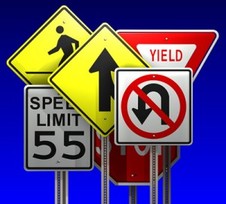 That's one way to think about them. You wouldn't be safe driving without them. How would you know when to stop? When to give way to the other driver? Just try driving in a country without Road Signs and you know what I mean. It's dangerous. With punctuation, it can be almost the same. The placement of a comma or colon can entirely change the meaning. Don't believe me? Listen to this story.the tit One writer brought this to everyone's attention about a decade ago---Lynn Tauss who wrote the book with the provocative title: "Eats, Shoots, and Leaves: The Zero Tolerance Approach to Punctuation." She challenged the reader with this title. What do you think it means? The first three words sound pretty violent. Yes, it sounds like he or she eats something, shoots something or someone, and then leaves. But did he or she eat, shoot and leave?
One space between sentences! That’s right! I wrote a long blog post about that several months ago announcing this and explaining why. There had been a lot of confusion about this and I kept getting asked about it. Basically when computers came on the scene, only one space was necessary in text for clear reading. So that's what publishers decided; before that, with typewriters, it was two spaces.  But since then, I have discovered that there are exceptions. Lawyers use two spaces in legal briefs that are read by judges and others. Why? I guess it's for clarity’s sake. I admit it took me a lot of sleuthing to find this out. I even got hold of that Bible of the legal field—the Blue Book—which explains how to document all references. And what did I find? The narrative in the book, typeset through computers, had sentences separated by one space. But when the Blue Book gave examples of actual legal briefs, the text clearly contained two spaces between sentences. My impression is that this is for clarity's sake--for the judges and other readers. So…I find myself corrected, or, let’s say I am informing you (if you are a lawyer) that of course you need to stick to the conventions of your field. For legal briefs, it's still two spaces between sentences.
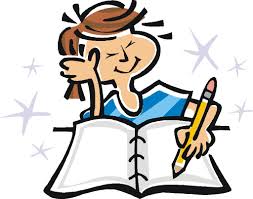 Check out PURDUE OWL on the internet for an Overview of Punctuation Let's face it. When you are writing an important report or even email, the Grammar Guru may not be available to answer your questions. For instance, you may be puzzling over whether or not quotation marks go before or after the period at the end of a sentence. If there is no teacher (or grammar book around), go to "Purdue OWL on your computer. There you will find answers to almost every grammar or writing style quandary. Of course, it's not as good ask asking the Grammar Guru your specific questions because you will have to "search" for the specific question and answer. But Purdue OWL offers you perfect back-up in emergency grammar situations! THE ANSWER TO THE ABOVE QUESTION: In American written English, the period, question mark or exclamation mark goes inside the quote marks. It's the opposite with British English. When speaking, we can pause or change the tone of our voices to indicate emphasis. When writing, we use punctuation to indicate these places of emphases. This handout should help to clarify when and how to use via Purdue OWL: Punctuation." Yes, it was that crusty 18th century curmudgeon, Samuel Johnson. It took him nine years, although he claimed it was only three. He wrote the first English dictionary that influenced the English language for hundreds of years. He wrote it without a typewriter. Without a computer. Yes, he did it all by hand--with a quill pen and ink. Would you have had the grit to do that?
|
Good writing skills are a cornerstone of success in the academic world, and they are also a major plus in later life. Archives
June 2021
Categories
All
|

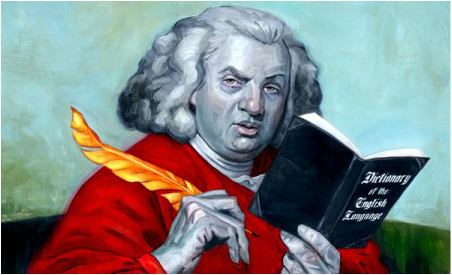
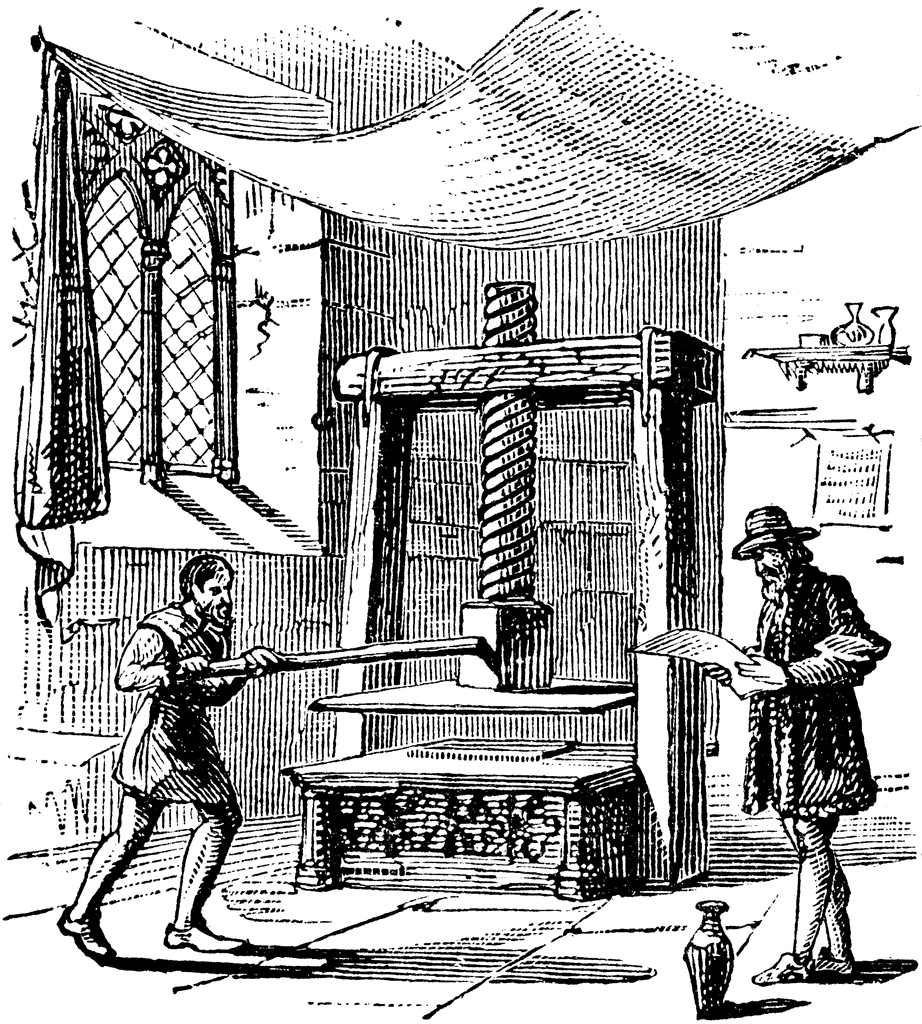
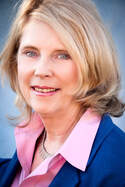
 RSS Feed
RSS Feed